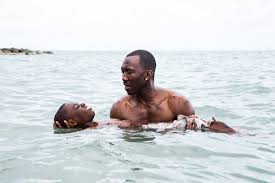Eater at the Movies — A Critic With….Taste
Posted on May 3, 2017 at 3:32 pm
I love people who write about movies from a specialized perspective and was delighted to discover Eater at the Movies, a column by Joshua David Stein about food in movies and movies about food — television, too.
There’s commentary about Pop’s Diner in “Riverdale,” based on the Archie comics:
In its Riverdale iteration, Pop’s once-comforting neon sign has been mined for all its creepy echoes of small town America. The neon flickers and what was once a beacon is now a luminous cicatrix in the dusk. The sign is a sign. The entire series operates on the premise that that which seems benign must be malign.
And he writes about “The Founder,” based on the story of McDonald’s. He reviews the film as a whole, not just the depiction of food preparation and consumption. He doesn’t like “Mr. Church,” but he correctly identifies “Tampopo” as one of the all-time great food movies. Bon Apetit!

